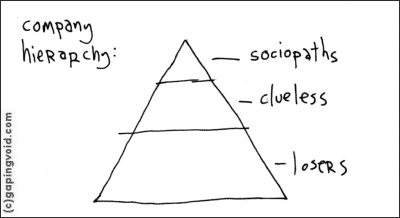| This is a collection of links and tweets since the start of the month (I’ve been away), so it’s much longer than usual. Hence abstracts are short, and I’ve tried to index them roughly by subject.
SAVING THE WORLD Jim Hansen Says Climate Talks Dead, Inadequate: The world’s most outspoken climate scientist, NASA Director Jim Hansen, says the Markey-Waxman “American Clean Energy and Security Act” (ACES) is a sham, worse than nothing, and the cause of the collapse of the G-8 pre-Copenhagen climate discussions last week. What he has revealed in the last month (besides how easy it is to get arrested when you dare to protest coal mining practices in the US), is that we cannot rely on governments anywhere to take even the feeblest of steps to avert climate change, and specifically to get atmospheric CO2 down below the 350ppm precipice. There is not even a modicum of political will in North America for a significant revenue-neutral carbon tax. Obama doesn’t get it, and the political system globally is so hog-tied by corporatist interests that the likelihood of significant concerted political action is zero. That means we have to take matters into our own hands. Or just give up. Time to become much more radical, my friends. (If you want to know why ACES is so bad, Dennis Kucinich, America’s most underrated politician, adds up the reasons. Another anaysis explains why mega-polluter Duke Energy liked the bill so much.) Paul Hawken’s Amazing Commencement Address: The former technophile and global-consciousness-is-rising fantasist grows up and tells graduates that the world is fucked and they have to work to make it better anyway. “If you look at the science about what is happening on earth and aren’t pessimistic, you don’t understand the data.” Brilliant writing. Thanks to Tree for the link. The Future of Permaculture and Transition: Rob, the founder of the Transition movement responds to Sharon Astyk’s insightful analysis (Part One, Part Two) of how the permaculture and transition ‘movements’ must work together, be honest about expectations, and be prepared to support people when suffering reaches huge levels due to the combination of climate change and the end of oil. Thanks to Eric L for the link. Sharon’s conclusion resonates so powerfully with my own thinking: I don’t think we have a Plan B. Ultimately, most of our plans – and I’d include Pat Murphy’s Plan C, Transition, Resilient cities, etc… come down to the same basic stuff, much of which has come, for better and worse, to live under the rhetorical rubric of “permaculture” and “Transition.” Get smaller fast. Get allies fast. Do everything at once – build new economies, grow food, fix the ecologies, help the hungry, the poor and the cold, help prevent more hungry poor and cold, stick your finger in the dike and watch it turn blue, hold back the water with your arms and all the force you’ve got. And the reality is this – on some measure what ever strategies we use will fail. But there is failure and failure, there are small floods and large ones. All that matters is that the work gets done, as well as possible, that the floods are as small as we can make them, and that the suffering is as little as possible. That’s honestly all I care about.
Bucky Fuller’s 1981 Prescience: Back in 1981 — nearly 30 years ago — Bucky Fuller published a book called Grunch of Giants that spoke of the dangers of globalization, corpocracy and the end of oil. The whole book is free online. Thanks to VJ Srinath for the link. Some excerpts:
Jimmy Carter’s 1979 Prescience: Two years before Bucky Fuller’s book, then-president Carter delivered what was probably the most remarkable presidential speech of the half-century. “We’ve discovered that owning things and consuming things does not satisfy our longing for meaning. We’ve learned that piling up material goods cannot fill the emptiness of lives which have no confidence or purpose.” A year later Americans voted in the most reactionary president of the half-century, Reagan. Thanks to Eric L for the link. Watching Whales Watching Us: The astonishing intelligence of whales, and their newly-discovered curiosity about humans. Thanks to Dave B for the link. Bill McDonough, Green Guru Gone Wrong: An extensive expose praises the Cradle to Cradle architect, and then reveals why his ego and desire to lock up all his ideas as revenue-generating intellectual capital have doomed to failure all efforts to bring any of his brilliant ideas to fruition. Thanks to my colleague Lisa French for the link. Where is the New Vision to Unite Us?: “That the only grand narrative on offer is so terrifying – of a world rapidly running out of the natural resources required to sustain extravagant lifestyles and burgeoning population – that it disables rather than empowers us to achieve political change. Terrified, we retreat into private stories of transformation – cosmetic surgery, makeovers of home and person – because we see no collective story of transformation we can believe in.” Thanks to Bee for the link. POLITICS AND ECONOMICS: Everything that Happens in Afghanistan is Based On Lies: A new film shows how hopeless the occupation of Afghanistan really is. The Ridiculously High Cost of Nuclear Power: $10,000/kw, plus environmental risks and costs, and radioactive waste that will outlast us all. The Organic Monopoly: How industry giants are undermining the organic movement with meaningless unverifiable feel-good product descriptions like “natural” and “sustainable”. Two Minutes of Hate: A daily compilation from MM4A of the day’s worst hate- and fear-mongering by the right-wing MSM. Depressing. Putin Lays off 400,000 Casino Workers: The intriguing question is — why close every casino in the country? Was the threat to his power from organized crime greater than the threat of nearly a half million angry unemployed workers? Or is Russians’ addiction to gambling even a greater threat to its social fabric than their horrific addiction to Afghan heroin? CULTURE AND HUMAN NATURE: Zen Meditation Instructions: All you ever wanted to know about posture, breathing and process, on one page. Thanks to Martin Roell for the link. Summary of ACT: An overview of Acceptance and Commitment Therapy (acknowledging and becoming objective about your stresses and anxieties instead of trying to ‘fix’ them). Thanks to John G for the link. In Praise of Death With Dignity: Beth Patterson tells a moving and inspiring story about a friend who chose to end her own life. BUSINESS & TECHNOLOGY: Chris Anderson vs Malcom Gladwell on the Future of Free: Gladwell reviews Anderson’s new book, and argues that Anderson takes the Future of Free too far. I hope this turns into a debate, because these guys are both brilliant, and the implications for business are huge. And besides it’s the first time I haven’t agreed with Gladwell. Thanks to Sheri Herndon for the link. Teens Don’t Twitter: Goldman Sachs is blown away by a report from a 15-year-old UK intern that tells them what any 15-year-old could have told them about social networking and its use by GenY. Thanks to Dale for the link. FUN AND INSPIRATION:
THOUGHTS FOR THE WEEK: From Dave B:
Like the Guantanomo prisoners, I too weave coded messages into my poems, layers of meaning without which they would cease to be poems — or indeed to convey anything of the truth, which is usually complex, often paradoxical, and always inimical to the interests of the powerful. Though I don’t often mention it, figuring that surreptitious campaigns have a greater chance of success than open ones, I am engaged in a battle of ideas with those who believe that War is (or can ever lead to) Peace and the rest of it. Like the indefinite detainees, I resort to poetry because without it I believe I would go mad or commit suicide. I am an enemy combatant.
From Naomi Shihab Nye: YELLOW GLOVE
What can a yellow glove mean in a world of motorcars and governments?
I was small, like everyone. Life was a string of precautions: Don’t kiss the squirrel before you bury him, don’t suck candy, pop balloons, drop watermelons, watch TV. When the new gloves appeared one Christmas, tucked in soft tissue, I heard it trailing me: Don’t lose the yellow gloves. I was small, there was too much to remember. One day, waving at a stream—the ice had cracked, winter chipping down, soon we would sail boats and roll into ditches—I let a glove go. Into the stream, sucked under the street. Since when did streets have mouths? I walked home on a desperate road. Gloves cost money. We didn’t have much. I would tell no one. I would wear the yellow glove that was left and keep the other hand in a pocket. I knew my mother’s eyes had tears they had not cried yet, I didn’t want to be the one to make them flow. It was the prayer I spoke secretly, folding socks, lining up donkeys in windowsills. To be good, a promise made to the roaches who scouted my closet at night. If you don’t get in my bed, I will be good. And they listened. I had a lot to fulfill. The months rolled down like towels out of a machine. I sang and drew and fattened the cat. Don’t scream, don’t lie, don’t cheat, don’t fight—you could hear it anywhere. A pebble could show you how to be smooth, tell the truth. A field could show how to sleep without walls. A stream could remember how to drift and change—next June I was stirring the stream like a soup, telling my brother dinner would be ready if he’d only hurry up with the bread, when I saw it. The yellow glove draped on a twig. A muddy survivor. A quiet flag. Where had it been in the three gone months? I could wash it, fold it in my winter drawer with its sister, no one in that world would ever know. There were miracles on Harvey Street. Children walked home in yellow light. Trees were reborn and gloves traveled far, but returned. A thousand miles later, what can a yellow glove mean in a world of bankbooks and stereos? Part of the difference between floating and going down. |







Someone smarter than me said “We used to dream of a better world now we dream of a better life “.A simple observation that ecapsulates the essence of our failure to deal with converging disasters.The Jimmy Carter quote reminded me of it.Sorry I dont have the solution.